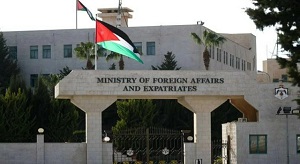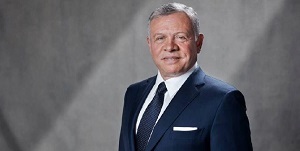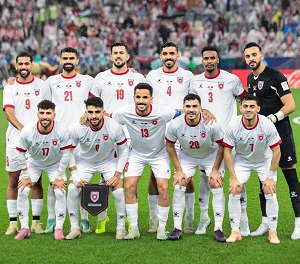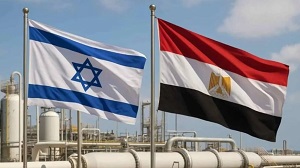- Last Update23-Oct-2021



- Tweet
-

Al jazeera
Palestine underground: A new face for local radio
How Palestine’s Radio Alhara is taking a grassroots approach to shaping a new landscape for protest, culture and local journalism online.

Yousef is performing this set together with several other Middle East-based DJs for Sonic Liberation Front, a months-long broadcast intended as a collective artistic show of support for Palestinian liberation.
Although they perform without a physical audience, the stream is being listened to by hundreds of people at once, being aired on Radio Alhara, the Palestine-based online radio station set up by Yousef, his brother Elias, and a group of international friends, which has quietly risen to become one of the most formidable online radio presences – and with it, one of the biggest voices for Palestinian liberation – in the world.
‘A new form of cultural centre’
Radio Alhara wasn’t always meant to be so overtly political. Set up during the first wave of the coronavirus pandemic in March 2020, the station was initially formed as a way for the station co-founders – five creatives active within the Palestinian cultural sphere – to broadcast daily radio shows online according to their mood on a particular day of isolation. “At the beginning, it was just kind of a joke platform where all of us exchange music, and invite friends to share [music] libraries,” recounted Elias over a video call.
The co-founders of Radio Alhara met both on the dance floor and through their various professions. The close-knit cultural and music community of Palestine was where Elias and Yousef – who are both architects and run an architectural practice together – met 40-year-old Yazan Khalil, who formerly ran the Khalil Sakakini Center, an arts and cultural institution in Ramallah. In Amman, graphic designers Saeed Abu Jaber, 36, and Mothanna Hussein, 34, met sound designer Ibrahim Owais, 38, through Owais’s regular appearances at the parties they organised. It was the exhibiting of chairs designed by Elias and Yousef at Saeed and Mothanna’s design studio that launched the co-founders’ friendship and eventual formation of the station.
 Sound artist Bakisa performing his contribution to Sonic Liberation Front as part of AAU Anastas’s pavilion at the Venice Biennale [Photo Courtesy of Radio Alhara]
Sound artist Bakisa performing his contribution to Sonic Liberation Front as part of AAU Anastas’s pavilion at the Venice Biennale [Photo Courtesy of Radio Alhara]During the pandemic, the group found themselves overwhelmed by the offerings of cultural institutions worldwide, which were focused on opening up their archives to the public. Seeking a grassroots, crowdsourced alternative, the Radio Alhara co-founders decided to build their own version of a community archive by commissioning hour-long broadcasts produced by fellow members of the cultural community.
They approached Yamakan, a Beirut-based initiative formed to help people within the Middle East and North Africa region set up their own radio stations. Established by the founders of Radio al Hai, a Lebanese online radio station set up earlier in the pandemic, the initiative is styled on the pirate radio stations that operate without official licenses from broadcasting authorities.
The initiative proved to be a match for the group behind Radio Alhara, who were concerned with maintaining the station’s creative independence, as well as its ability to foster a cultural community that wasn’t beholden to corporate interests or the need for donors. Like pirate radio, Yamakan’s stations, including Radio Alhara, are community enterprises characterised by high voluntary participation, operation at little to no cost and without fear of regulatory censorship. “It has been very interesting to think of [Radio Alhara as] a new form of cultural centre,” said Elias.
Local community – on an international level
Inspired by the community that has formed around stations like Radio al Hai, the co-founders settled on the name “Hara”, which means “neighbourhood” in Arabic. “The neighbourhood is a space defined by the people who live [within it], and they make it become more detailed,” explained Elias. “It’s a space governed by its inhabitants and its users.”
The result of this vibrant neighbourhood – which Yazan refers to as a collective of “cultural producers” – is that shows about niche music harmoniously occupy the same schedule as conversations with academics, chefs, and activists alike.
That this community has gathered around Palestine, a state whose colonisation by Israel weighs daily on the five million people who live under increasing restrictions in both Gaza and the West Bank, makes it unsurprising that many of the station’s broadcasts contain an anti-imperialist flavour.
On a Sunday in June, an hour of jazz from the 1960s selected by Berlin-based record label manager Dimitra Zina is followed by a discussion between researchers Nora Akawi and Khyam Allami on challenging the Western biases inherent in music production software. The following Friday, shows flitted from an hour of Barcelonan minimal techno to a reading of works by the Tuareg novelist, Ibrahim Al-Koni.
 In a photo from 2007, a Palestinian man listens to the radio as he herds a flock of sheep near his home in the West Bank village of Ghwien, south of Hebron [File: Reuters/Nayef Hashlamoun]
In a photo from 2007, a Palestinian man listens to the radio as he herds a flock of sheep near his home in the West Bank village of Ghwien, south of Hebron [File: Reuters/Nayef Hashlamoun]The social space of music and dancing has historically been a site of sociopolitical resistance. In New Orleans in the 1910s, for instance, jazz was the language of resistance for African Americans, who used music to collectively build a culture and movement in spite of attempts to suppress it. In the same tradition, the music and cultural community of Palestine, through Radio Alhara, declares itself a space for resistance against political oppression and tyranny, where they are free despite the increasing restrictions they face simply for being Palestinians. Symbolically, that same jazz, music from the likes of Dizzy Gillespie and Louis Armstrong, is heard regularly on the station.
Radio Alhara’s rapid growth as a cultural beacon of Palestine mirrors the dramatic ascent of the state’s music scene on a global stage. In 2018, the techno DJ, Sama’ Abdulhadi, performed a set on streaming platform Boiler Room to critical acclaim, one that has been viewed over 8.5 million times. The rooftops of Palestinian office blocks where parties such as Abdulhadi’s are often held may have been empty during the pandemic, but these online endeavours have kept the spirit alive.
‘Tomorrow, when the apricots bloom’
Just months into initial operations at Radio Alhara last July, the station found itself turning its focus entirely to Palestinian liberation with a week-long marathon broadcast they called, “Fil Mishmish” – Arabic that roughly translates to “tomorrow, when the apricots bloom” – a sonic protest against proposed plans by Israel to annex parts of the West Bank last July. The phrase, which is used to mean “wishful thinking”, or something that may never happen, has its roots in the apricot-picking season, which falls on only two weeks of the year. It expresses the frustration that freedom is hard-fought and far from being achieved.
Latest News
-
 Syria monitor says US strikes killed at least five Daesh members
Syria monitor says US strikes killed at least five Daesh members
-
 Jordan welcomes lifting of US sanctions on Syria
Jordan welcomes lifting of US sanctions on Syria
-
 King hails Nashama achievement, Jordanians’ unity, resilience
King hails Nashama achievement, Jordanians’ unity, resilience
-
 Jordan finish runners-up after extra-time loss to Morocco in Arab Cup final
Jordan finish runners-up after extra-time loss to Morocco in Arab Cup final
-
 Egypt emphasizes 'Israel' gas deal is "purely commercial"
Egypt emphasizes 'Israel' gas deal is "purely commercial"